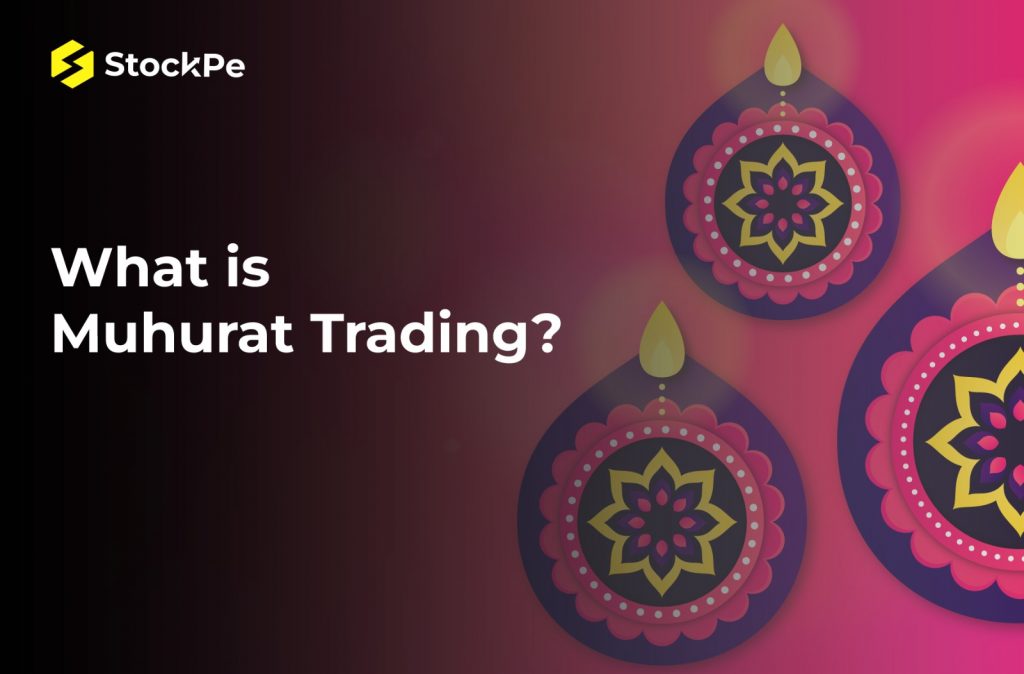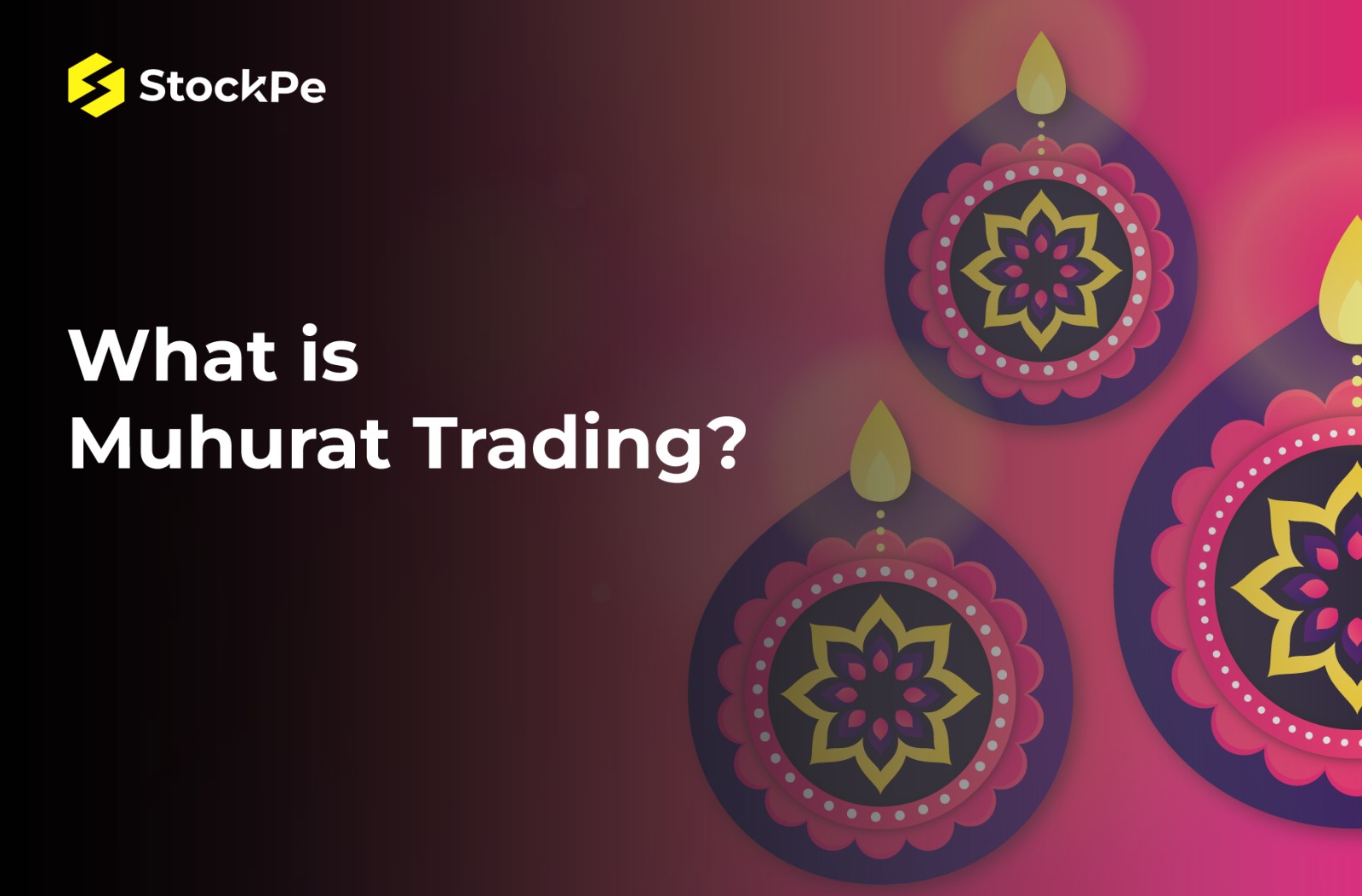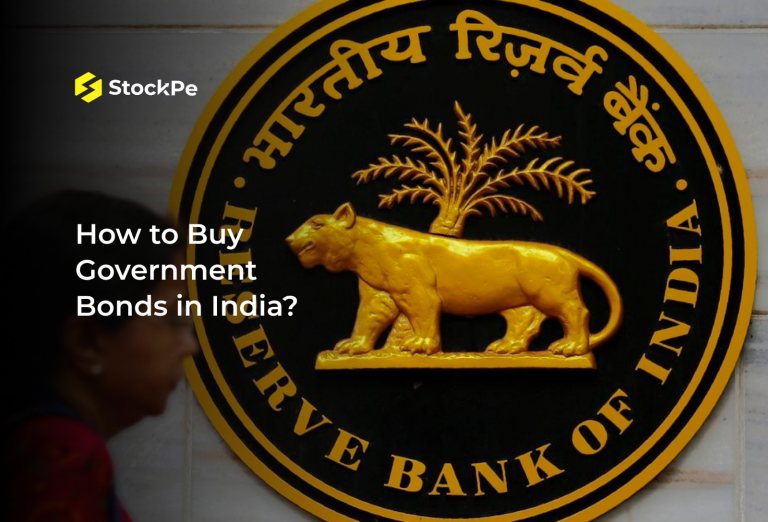Do you know that Diwali, the festival of lights, plays a significant role in the Indian business markets? Conducted on Diwali every year, Muhurat Trading is the day when people buy and sell stock in the market. As per the data collected from 2007 to 2021, Sensex has recorded historical performance on the Muhurat Trading dates.
If you have limited knowledge about the topic, here is the perfect article tailor-made for you. From the history and significance of the Muhurat Trading date – this article shares a detailed overview of everything the event is about.

What is Muhurat Trading?
The word ‘Muhurat’ means ‘auspicious’ in Sanskrit. Apart from having a deep-rooted cultural and social connotation, ‘Muhurat’ also has a special significance in the Indian business world. Muhurat Trading session involves the buying and selling of securities during Diwali.
In contrast to the general trading window, the Muhurat Trading period remains open only for one hour. Diwali welcomes the beginning of the new year. Therefore, businessmen and traders in India consider it a special moment to invest in stocks for Muhurat Trading.
According to oral histories, Marwari and Gujarati communities started this tradition and since then, the ritual has been adopted by hundreds of traders and investors on a pan-India basis. For beginners who are yet to step into the market, Muhurat Trading can be a great opportunity to start their trading journey.
Muhurat Trading – History and Significance
Muhurat Trading is an auspicious practice that takes place on the special occasion of Diwali. The ritual that started almost sixty-five years ago continues even today with stockbrokers initiating new settlement accounts on the special ‘Muhurat’ – occasion.
The roots of Muhurat Trading meaning lie in 1957 when the Bombay Stock Exchange organized Muhurat Trading for the first time. Continuing the tradition, the National Stock Exchange organized Muhurat Trading in 1992.
Since then, Diwali Muhurat Trading has become an important occasion for everyone associated with the trading industry. It marks the beginning of the new year for stockbrokers. They perform ‘Chopra Pooja’ to commemorate this event at the Stock Exchange.
What happens during Muhurat Trading?
While the market remains open and operational from 9:15 am to 3:30 pm on other days of the year, on Diwali, traders have just an hour to buy or sell their stocks and earn attractive revenues.
The Muhurat Trading time is typically divided under the following heads:
Block deal session:
The buyer and the seller decide on a particular security and inform the Stock Exchange.
Pre-open session:
This session generally lasts only for 8 minutes. It is the time period that the Stock Exchange utilise to fix the equilibrium price.
Normal market session:
It is the actual trading session that continues for one hour. Here, all the trading systems remain the same. The only change is the trading window that remains open only for one hour.
Call auction session:
During this time period, the investors conduct transactions concerning illiquid securities.
Closing session:
This is the final session on Diwali. This time requires the traders and investors to place a market order at the determined closing price.
Muhurat Trading Date 2023
Muhurat Trading happens simultaneously on two platforms – BSE and NSE. The date and timing of this trading session change from year to year and are determined by Hindu Panchang. The Stock Exchange of India publishes the Muhurat Trading date and timing. They are available on the website and get published in the local newspapers.
This year, the Muhurat Trading NSE date falls on 12th November 2023. However, the date of the stock market Diwali Muhurat Trading is also subject to change. In case of any alterations, the Stock Exchange of India will also issue a circular in advance.
NSE and BSE Muhurat Trading Timing 2023
Here is a detailed breakdown of the 1-hour span during which investors can trade on Diwali.
| Session | Timings |
| Block-deal session | 5:45 pm to 6 pm |
| Pre-open session | 6 pm to 6:08 pm |
| Normal trading session | 6:15 pm to 7:15 pm |
| Call auction session | 6:20 pm to 7:05 pm |
| Closing session | 7:25 pm to 7:35 pm |
Advantages of Muhurat Trading
Excellent trading season
Since the trading volumes exceed expectations during this season, people feel positive and invest more in the market. Whether you are a budding trader or a professional investor, this trading season brings you a golden opportunity to try your luck.
Good for beginners
Diwali ushers in a holiday atmosphere – a time of happiness and prosperity. Thus, it is the best time for individuals who are new to the trading world. The Diwali Muhurat Trading time can be the ideal time to invest in some growth stocks, applying a robust investment strategy.
Beneficial for experienced traders
The window for this kind of trading remains open only for an hour. As a result, the markets are turbulent. Under these circumstances, traders or investors with more experience and skill can reap more benefits than first-time investors.
Future prediction
At times, investors with great experience and skills can read the markets thoroughly and spot the upcoming trends. This helps them to stay ahead of other investors and influences their investing patterns. However, post-COVID, the market is yet to catch up and be in a stable state. So, applying proper judgement is required before trading.
Disadvantages of Muhurat Trading
A popular ritual in India, Muhurat Trading is expected to bring luck and positive vibes since the investment happens on the auspicious occasion of Muhurat Trade timings during Diwali. However, before investing your hard-earned funds, one should check the conditions attached to the investment.
Like all investments, this kind of trading is also subject to market risks. Therefore, without proper market knowledge, investing in Muhurat Trading might not always be profitable. During Diwali, stock prices of all companies display the firm’s fundamentals. It is advisable to invest in stocks that have the potential to grow further and give handsome returns.
Muhurat Trading – Things to Remember
1. On Diwali, the trading window is operational only for 1 hour. So, ensure that you complete all your transactions within that time frame.
2. Start checking the overall market conditions a few weeks before Diwali. This will give you an overview of the stability or volatility of the market. Go through the market patterns and trends to make the best trading decisions for yourself.
3. Before investing for the long term, evaluate the company’s fundamentals. If you invest your money in a rush, you might not be able to receive the rewards you were expecting.
4. If you want to make the fullest use of the market volatility, evaluate the stocks you have chosen. Choose reputed companies that have been doing well and go for the stocks that have good trading volumes.
5. Sometimes, traders commit the mistake of getting overwhelmed by the excitement of investing in the Muhurat Trading Stock Market during Diwali. Research the companies you are willing to invest in and study their stock performance in the last couple of months. Make an informed decision based on your findings.
6. When the trading session closes, all the available open positions will have to undergo settlement obligations.
Muhurat Trading – Final Thoughts
Traders and investors consider Muhurat Trading to be a special event. To achieve the highest rewards, individuals need to stay abreast of contemporary trends and stay away from spreading or giving attention to baseless rumours. Hope this article on what Muhurat Trading means has been helpful to you. So, the next time you decide to trade during Diwali, make sure to take the necessary precautions and invest only in stocks you are confident about.





